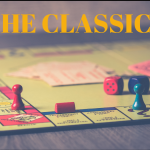There are different ways to pass time, have fun, build knowledge, have healthy competition, and spend quality time with friends and family. You could hang out, cook together, go for walks, and engage in many activities. But playing board games is one activity that combines all these benefits and stands out.
Games like this combine many qualities that make engaging in it super fun and beneficial. This is because winning them combines luck/chance with intellect and skills. So, you never can tell. Your fate may be decided by luck, even when your intellect is sound. One way to truly win is to have fun.
Table of Contents
What are Board Games?
They are tabletop games that use a board, dice, or other playing pieces on the board following a certain set of rules to get to the finish line. The number of persons that can play each game varies, and it depends on the type and the rules surrounding the game. The minimum number of persons for all, however, is two.
There are games for adults and children as well. This shows their versatility and uniqueness. They can be used for leisure, as well as competitions and even learning. In many Nigerian homes, it used to be a way for fathers to connect with their kids on weekends after working late during the week.
Classic and Trending Examples of Board Games among Nigerians
People have different interests, so their game choices would also vary. The following are some examples; they never get old.
-
Ayo
The game is also known as ‘Ayo Olopon’, and it has been played for the longest time, even now. Elders then found it as a way of relaxing after the day’s work, and now, a lot of people find it amusing and stimulating.
It involves two players moving seeds around a board of six holes on each side of the board. These holes are filled with four seeds each. The objective of this game is to move the seeds so that you can capture all of your opponent’s seeds.
Playing Ayo requires you to choose your moves carefully, and it also requires mathematical skills. (Sorry if you didn’t or still don’t like Maths).
-
Ludo
Ludo is considered the king of board games. It is played on a board of four different colours at the edges of the board–usually red, blue, green, and yellow. Each colour has four pieces you can move around depending on the dice rolled. Two to four players can play, where two players have two colours each, and four players have one colour each.
The purpose is to move the four pieces around the board based on the poured die. Players are expected to skillfully avoid other players while moving or clear them when their piece lands on an opponent’s piece.
Winning this board game is based on how lucky you are with the dice you pour and also how you can maneuver your pieces skillfully.
-
Chess
Chess is a highly stimulating and intellectual game that can be played for leisure and on a competitive basis.
A chess board has 64 squares with sixteen pieces for each player: eight pawns, two bishops, two knights, two rooks, one queen, and one king. Each piece moves differently across the board and contributes to the chessboard rules.
To win a chess game, you have to checkmate the opponent’s king. This means that you have to put your opponent’s king in a position where there’s no possible move to escape. Playing with a timer makes it more engaging and reduces the time spent because, if not, a player can spend many minutes deciding on the next move.
-
Checkers
It is also known as Draft or Draught. The game has two players, each with 12 pieces, known as checkers. The aim is to capture all your opponent’s checkers or block their pieces so they can’t make any more moves. To do this, a lot of strategic thinking is needed so that you can make the right moves. It’s somewhat similar to chess.
-
Snakes and ladders
This game also relies on chance. When you roll the dice, the number obtained determines how far you move. If you land on a ladder, you get to climb up the ladder, giving you an edge. But if you land on a snake or slide, you go back down to the square at the bottom of the slide.
To win this game, you must be the first to get to the top of the square. It was probably the most common weekend game among families.
-
Scrabble
This game is considered highly educational, as it improves your vocabulary. To play, you have to first fill your rack with seven tiles, which will be used to form your words on the board.
The Scrabble board accommodates two to four players. To begin the game, each player picks a word tile from the tile bag, and the order of play will be the order of the selected alphabets. Then, they return the initial tile and pick seven new tiles that would be used to build their words either vertically or horizontally on the board to score points.
If you get stuck while playing, you can exchange your tiles in place of a turn. The goal of this game is to earn the highest score by the end of the game through the number of points you earn.
-
Monopoly
Looking forward to buying your first property? Try playing Monopoly. It allows you to buy, rent, and sell properties (within the game). Monopoly is newish among Nigerians, compared to Ayo and snakes and ladders.
The game allows two to eight players: the more, the merrier. It comprises two dice, tokens for each player, houses, hotels, community chest cards, title deeds for property, and money. Players roll the dice, which determines the steps they take and the decisions they make while playing the game.
You win the game of Monopoly when you become the wealthiest player by buying, renting, and selling properties while other players go into bankruptcy. If you pay attention, you’d learn something about real estate, no matter how small.
Did you know Insight has a YouTube channel where we discuss youthful trends and fun topics? Subscribe and interact with our most recent productions.
Benefits of Playing Board Games
Playing board games has many benefits that touch different aspects of our daily lives. Some of these benefits are intellectual, while others are emotional and social. It’s amazing how we can learn and acquire so much while having fun.
- They are intellectually stimulating: Learning shouldn’t be limited to the four walls of the classroom alone. Some games involve maths and spelling, while others require strategic thinking. This helps in brain development while doing something fun.
- They strengthen bonds: Social skills can be improved while playing. It also creates connections by helping people learn to enjoy other’s company while engaging in conversations. Likewise, it strengthens bonds in the form of healthy competition between individuals, groups, and even nations (usually, chess).
- Enhances creativity: Naturally, you think of creative ways to win your opponent while playing. It also helps you to think outside the box.
- Teaches soft skills: Certain skills needed in life can be learned while playing board games. Skills like decision-making, problem-solving, patience, teamwork, strategic thinking, etc
- Reduces stress: By playing these games, you can take your mind off anything that may be contributing to your stress. It is definitely a way to relax and give yourself a break.
Conclusion
Different forms of entertainment dominate our world today, and due to the advent of technology, a lot of people abandon the world around them while getting lost in the digital world. Board games are a fun way to connect, learn and grow. Have you played any of these? Share your stories with us in the comments, or join our Whatsapp community and start a conversation.
If you’ll be trying out some of these, have fun while you do!
Other pieces you may enjoy:
- A trip down memory lane: 10 books Nigerians born in the 80s and 90s would remember
- 20 funny Nigerian memes that will forever be funny
- Truth or dare: How to shake sary tables among your inner circle
Edited by Halimat Chisom.
About Author
- I am a student of Obafemi Awolowo University. A Gen-Z and advocate for the Soft Life. I spend most of my leisure time as a freelancer, creatively curating content and telling relatable stories. I am also passionate about quality lifestyle.
Latest entries
 SpiceDecember 11, 20237 Board Games Among Nigerians That Will Never Get Old
SpiceDecember 11, 20237 Board Games Among Nigerians That Will Never Get Old SpiceNovember 30, 2023How to Spot Fake News and Its Effect
SpiceNovember 30, 2023How to Spot Fake News and Its Effect LifestyleOctober 16, 2023Markets in Lagos and What You Need to Know About Them
LifestyleOctober 16, 2023Markets in Lagos and What You Need to Know About Them LifestyleSeptember 8, 20239 Must-visit Travel Destinations in Nigeria
LifestyleSeptember 8, 20239 Must-visit Travel Destinations in Nigeria

